<< Previous | Displaying results 2101-2150 of 6769 for "" | Next >>
Miles Lerman was a Holocaust survivor, partisan fighter in the forests of Poland, international leader in the cause of Holocaust remembrance, and a "founding father" of the United States Holocaust Memorial Museum.
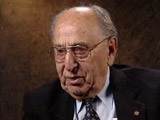
Miles Lerman was a Holocaust survivor, partisan fighter in the forests of Poland, international leader in the cause of Holocaust remembrance, and a "founding father" of the United States Holocaust Memorial Museum.
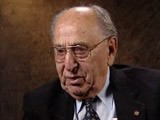
Miles Lerman was a Holocaust survivor, partisan fighter in the forests of Poland, international leader in the cause of Holocaust remembrance, and a "founding father" of the United States Holocaust Memorial Museum.
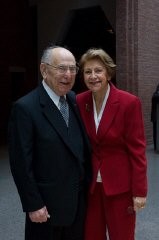
Miles Lerman was a Holocaust survivor, partisan fighter in the forests of Poland, international leader in the cause of Holocaust remembrance, and a "founding father" of the United States Holocaust Memorial Museum.
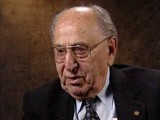
Miles Lerman was a Holocaust survivor, partisan fighter in the forests of German-occupied Poland, international leader in the cause of Holocaust remembrance, and a "founding father" of the United States Holocaust Memorial Museum.
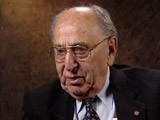
Miles Lerman was a Holocaust survivor, partisan fighter in the forests of Poland, international leader in the cause of Holocaust remembrance, and a "founding father" of the United States Holocaust Memorial Museum.
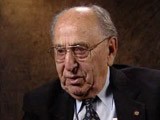
Miles Lerman was a Holocaust survivor, partisan fighter in the forests of Poland, international leader in the cause of Holocaust remembrance, and a "founding father" of the United States Holocaust Memorial Museum.
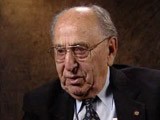
Miles Lerman was a Holocaust survivor, partisan fighter in the forests of Poland, international leader in the cause of Holocaust remembrance, and a "founding father" of the United States Holocaust Memorial Museum.
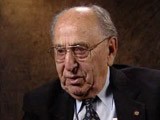
Edward was born to a Jewish family in Hamburg. In 1935, the Nuremberg Laws prohibited marriage or sexual relations between German non-Jews and Jews. Edward was then in his mid-twenties. Edward was arrested for dating a non-Jewish woman. Classified as a habitual offender, he was later deported to the Sachsenhausen concentration camp, near Berlin. He was forced to perform hard labor in construction projects. Edward had married shortly before his imprisonment, and his wife made arrangements for their…
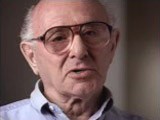
Edward was born to a Jewish family in The Hague. In 1929, the family moved to the United States. Because his father had difficulty finding employment, Edward and his family returned to the Netherlands in 1932. They were living in the town of Delft and running a small clothing store when war broke out. Germany invaded the Netherlands in May 1940. Anti-Jewish decrees were instituted, increasing in severity to the point that Jews could no longer own businesses and were forced to wear a yellow badge after May…
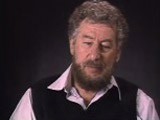
In the 1980s and 1990s, historian Peter Black worked for the US Department of Justice Office of Special Investigations, as part of a team tracking and prosecuting suspected war criminals. Black later served as the Senior Historian at the United States Holocaust Memorial Museum.
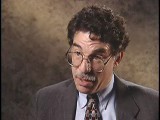
Norbert studied law and was a social worker in Berlin. He worked on the Kindertransport (Children's Transport) program, arranging to send Jewish children from Europe to Great Britain. His parents, who also lived in Berlin, were deported in December 1942. Norbert, his wife, and their child were deported to Auschwitz in March 1943. He was separated from his wife and child, and sent to the Buna works near Auschwitz III (Monowitz) for forced labor. Norbert survived the Auschwitz camp, and was liberated by US…
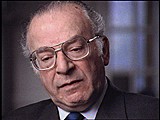
In Frankfurt, Ruth's family faced intensifying anti-Jewish measures; her father's business was taken over and Ruth's Jewish school was closed. In April 1943, Ruth and her family were deported to Auschwitz. Ruth was selected for forced labor and assigned to work on road repairs. She also worked in the "Kanada" unit, sorting possessions brought into the camp. In November 1944, Ruth was transferred to the Ravensbrueck camp system, in Germany. She was liberated in May 1945, during a death march from the…
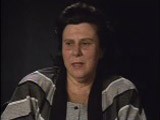
Describes the German destruction of the Slonim ghetto
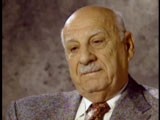
Describes punishment for spilling some food in the Auschwitz camp
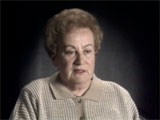
Describes her arrival in Sweden, at the war's end, with the aid of the Red Cross
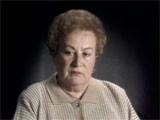
Describes assistance from the Red Cross at the end of the war
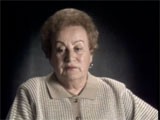
Describes Anne Frank's parents
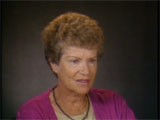
Describes using false papers and living in hiding
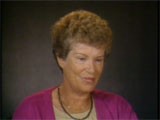
Elizabeth and her family were in Paris when war began. As the Germans advanced in 1940, she and her mother fled southward. Elizabeth eventually reached Le Chambon, where she helped care for children sheltered by the town's pastor, Andre Trocme, and his wife. In late 1941 her father was among 1,000 intellectuals who received special US visas from President Franklin D. Roosevelt. The family escaped from France in 1942 on one of the last passenger ships to cross the Atlantic during the war.
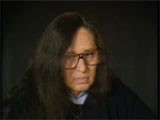
Elizabeth and her family were in Paris when war began. As the Germans advanced in 1940, she and her mother fled southward. Elizabeth eventually reached Le Chambon, where she helped care for children sheltered by the town's pastor, Andre Trocme, and his wife. In late 1941 her father was among 1,000 intellectuals who received special US visas from President Franklin D. Roosevelt. The family escaped from France in 1942 on one of the last passenger ships to cross the Atlantic during the war.
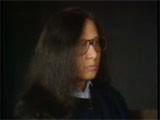
Elizabeth and her family were in Paris when war began. As the Germans advanced in 1940, she and her mother fled southward. Elizabeth eventually reached Le Chambon, where she helped care for children sheltered by the town's pastor, Andre Trocme, and his wife. In late 1941 her father was among 1,000 intellectuals who received special US visas from President Franklin D. Roosevelt. The family escaped from France in 1942 on one of the last passenger ships to cross the Atlantic during the war.
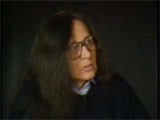
Describes Pastor Andre Trocme and his wife Magda Trocme
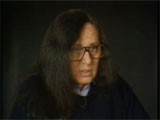
Emanuel's father was a cantor who became, soon after Emanuel was born, one of the chief cantors in Budapest. Germany occupied Hungary in March 1944. Systematic deportations of Jews from Hungary to the Auschwitz camp in occupied Poland began in May 1944. Emanuel and his mother were part of the train, organized by Zionist activist Rezso Kasztner, of over 1,600 Hungarian Jews who were to be sent to neutral countries as part of an exchange program. The train arrived at the Bergen-Belsen camp, where the…
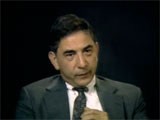
Naftali was the youngest of nine children born to devout Hasidic Jewish parents living in Kolbuszowa. The Germans invaded his town in September 1939 and began to round up Jews. Later, the Gestapo (German secret state police) shot Naftali's father. Naftali eventually made his way to the forest and lived there as a partisan before liberation by Soviet troops in mid-1944. He joined the Polish army, helping to liberate Krakow. He immigrated to the United States in 1947.
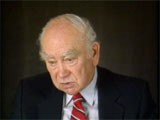
Naftali was the youngest of nine children born to devout Hasidic Jewish parents living in Kolbuszowa. The Germans invaded his town in September 1939 and began to round up Jews. Later, the Gestapo (German secret state police) shot Naftali's father. Naftali eventually made his way to the forest and lived there as a partisan before liberation by Soviet troops in mid-1944. He joined the Polish army, helping to liberate Krakow. He immigrated to the United States in 1947.
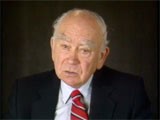
Irene and Rene were born Renate and Rene Guttmann. The family moved to Prague shortly after the twins' birth, where they were living when the Germans occupied Bohemia and Moravia in March 1939. A few months later, uniformed Germans arrested their father. Decades later, Irene and Rene learned that he was killed at the Auschwitz camp in December 1941. Irene, Rene, and their mother were deported to the Theresienstadt ghetto, and later to the Auschwitz camp. At Auschwitz, the twins were separated and subjected…
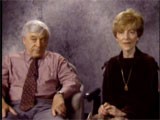
Irene and Rene were born Renate and Rene Guttmann. The family moved to Prague shortly after the twins' birth, where they were living when the Germans occupied Bohemia and Moravia in March 1939. A few months later, uniformed Germans arrested their father. Decades later, Irene and Rene learned that he was killed at the Auschwitz camp in December 1941. Irene, Rene, and their mother were deported to the Theresienstadt ghetto, and later to the Auschwitz camp. At Auschwitz, the twins were separated and subjected…
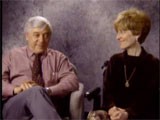
Irene and Rene were born Renate and Rene Guttmann. The family moved to Prague shortly after the twins' birth, where they were living when the Germans occupied Bohemia and Moravia in March 1939. A few months later, uniformed Germans arrested their father. Decades later, Irene and Rene learned that he was killed at the Auschwitz camp in December 1941. Irene, Rene, and their mother were deported to the Theresienstadt ghetto, and later to the Auschwitz camp. At Auschwitz, the twins were separated and subjected…
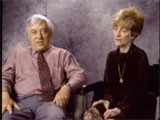
The Germans annexed Austria in March 1938. In 1939, Hans fled first to Hungary and then to Italy. He and his parents were interned in various towns. Hans's father became ill and died in 1940. In 1943, Hans and his mother were warned of German plans to deport Jews from Italy to Poland. They moved to smaller towns until liberation by the British in August 1943. Hans worked as an interpreter for the Allies until 1945, when he worked for the American Jewish Joint Distribution Committee and helped resettle…
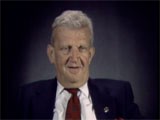
Wilek was the son of Jewish parents living in the southeastern Polish town of Lvov. His family owned and operated a winery that had been in family hands since 1870. Wilek's father died of a heart attack in 1929. Wilek entered secondary school in 1939. Soon after he began school, World War II began with the German invasion of Poland. Lvov was in the part of eastern Poland annexed by the Soviet Union. Although the Soviets took over Wilek's home and the family business, Wilek was able to continue his…
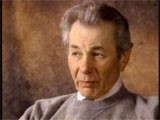
Wilek was the son of Jewish parents living in the southeastern Polish town of Lvov. His family owned and operated a winery that had been in family hands since 1870. Wilek's father died of a heart attack in 1929. Wilek entered secondary school in 1939. Soon after he began school, World War II began with the German invasion of Poland. Lvov was in the part of eastern Poland annexed by the Soviet Union. Although the Soviets took over Wilek's home and the family business, Wilek was able to continue his…
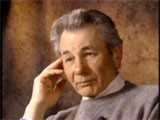
Wilek was the son of Jewish parents living in the southeastern Polish town of Lvov. His family owned and operated a winery that had been in family hands since 1870. Wilek's father died of a heart attack in 1929. Wilek entered secondary school in 1939. Soon after he began school, World War II began with the German invasion of Poland. Lvov was in the part of eastern Poland annexed by the Soviet Union. Although the Soviets took over Wilek's home and the family business, Wilek was able to continue his…
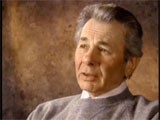
Wilek was the son of Jewish parents living in the southeastern Polish town of Lvov. His family owned and operated a winery that had been in family hands since 1870. Wilek's father died of a heart attack in 1929. Wilek entered secondary school in 1939. Soon after he began school, World War II began with the German invasion of Poland. Lvov was in the part of eastern Poland annexed by the Soviet Union. Although the Soviets took over Wilek's home and the family business, Wilek was able to continue his…
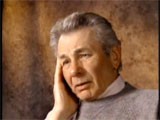
Wilek was the son of Jewish parents living in the southeastern Polish town of Lvov. His family owned and operated a winery that had been in family hands since 1870. Wilek's father died of a heart attack in 1929. Wilek entered secondary school in 1939. Soon after he began school, World War II began with the German invasion of Poland. Lvov was in the part of eastern Poland annexed by the Soviet Union. Although the Soviets took over Wilek's home and the family business, Wilek was able to continue his…
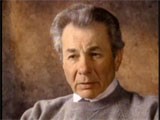
Wilek was the son of Jewish parents living in the southeastern Polish town of Lvov. His family owned and operated a winery that had been in family hands since 1870. Wilek's father died of a heart attack in 1929. Wilek entered secondary school in 1939. Soon after he began school, World War II began with the German invasion of Poland. Lvov was in the part of eastern Poland annexed by the Soviet Union. Although the Soviets took over Wilek's home and the family business, Wilek was able to continue his…
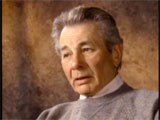
Guta and her family fled to Starachowice, Poland. There, the Germans ordered them and other Jews into a ghetto and put them to work in forced-labor factories. As an act of resistance at the Majowka camp, Guta attacked a Nazi guard preparing to shoot her and other prisoners at a mass grave. A bullet grazed her, but Guta pretended to be fatally wounded. Days later, Guta was deported to Auschwitz, then Ravensbrueck, where she was liberated. Her mother died only weeks short of freedom.
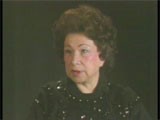
Recalls experiences while hiding in France
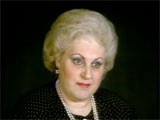
When Simone was three her family moved to Strasbourg, where her father bred sheep. Simone and her brother were active in Jewish scouting. In 1940, she worked as a teacher in Paris. The Germans invaded western Europe in May 1940. Simone and her family fled German-occupied France for the unoccupied southern zone. There Simone worked at an internment camp for foreign-born Jews. She tried to provide forged documents in an attempt to save lives. Later, Simone assumed a false name and joined the Children's Aid…
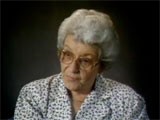
When Simone was three her family moved to Strasbourg, where her father bred sheep. Simone and her brother were active in Jewish scouting. In 1940, she worked as a teacher in Paris. The Germans invaded western Europe in May 1940. Simone and her family fled German-occupied France for the unoccupied southern zone. There Simone worked at an internment camp for foreign-born Jews. She tried to provide forged documents in an attempt to save lives. Later, Simone assumed a false name and joined the Children's Aid…
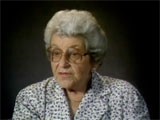
When Simone was three her family moved to Strasbourg, where her father bred sheep. Simone and her brother were active in Jewish scouting. In 1940, she worked as a teacher in Paris. The Germans invaded western Europe in May 1940. Simone and her family fled German-occupied France for the unoccupied southern zone. There Simone worked at an internment camp for foreign-born Jews. She tried to provide forged documents in an attempt to save lives. Later, Simone assumed a false name and joined the Children's Aid…
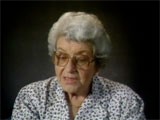
In 1942, Hana was confined with other Jews to the Theresienstadt ghetto, where she worked as a nurse. There, amid epidemics and poverty, residents held operas, debates, and poetry readings. In 1944, she was deported to Auschwitz. After a month there, she was sent to Sackisch, a Gross-Rosen subcamp, where she made airplane parts at forced labor. She was liberated in May 1945.
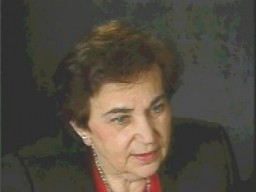
John, who was born to a non-Jewish Polish family, graduated from an art academy. Following the German invasion of Poland on September 1, 1939, John was in Krakow. Food became scarce in Krakow, with long lines of people waiting for whatever food was available. John decided to join the resistance against the Germans. By early 1940, he and two of his friends felt that they were in danger and decided to try to escape to France. John was caught and arrested during this escape attempt. He survived imprisonment…
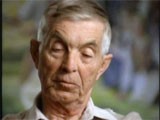
Mieczyslaw and his family were not Jewish. When Germany invaded Poland, Mieczyslaw was working for an organization formed for self-defense against German bombings. Later, he worked for the Polish underground group ZWZ (Zwiazek Walki Zbrojnej; Union for Armed Struggle), which became the AK (Armia Krajowa; Home Army). In 1943, he was conscripted for forced labor at a BMW plant in Warsaw. He escaped, and participated in the Warsaw Polish uprising in August 1944. After the uprising, he left Warsaw and went…
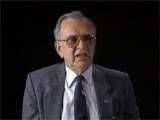
Mieczyslaw and his family were not Jewish. When Germany invaded Poland, Mieczyslaw was working for an organization formed for self-defense against German bombings. Later, he worked for the Polish underground group ZWZ (Zwiazek Walki Zbrojnej; Union for Armed Struggle), which became the AK (Armia Krajowa; Home Army). In 1943, he was conscripted for forced labor at a BMW plant in Warsaw. He escaped, and participated in the Warsaw Polish uprising in August 1944. After the uprising, he left Warsaw and went…
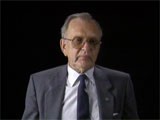
Mieczyslaw and his family were not Jewish. When Germany invaded Poland, Mieczyslaw was working for an organization formed for self-defense against German bombings. Later, he worked for the Polish underground group ZWZ (Zwiazek Walki Zbrojnej; Union for Armed Struggle), which became the AK (Armia Krajowa; Home Army). In 1943, he was conscripted for forced labor at a BMW plant in Warsaw. He escaped, and participated in the Warsaw Polish uprising in August 1944. After the uprising, he left Warsaw and went…
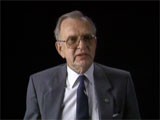
Blanka was an only child in a close-knit family in Lodz, Poland. Her father died in 1937. After the German invasion of Poland, Blanka and her mother remained in Lodz with Blanka's grandmother, who was unable to travel. Along with other relatives, they were forced into the Lodz ghetto in 1940. There, Blanka worked in a bakery. She and her mother later worked in a hospital in the Lodz ghetto, where they remained until late 1944 when they were deported to the Ravensbrueck camp in Germany. From Ravensbrueck,…
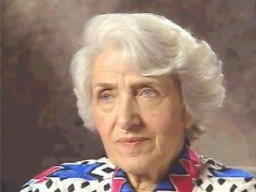
Fritzie's father immigrated to the United States, but by the time he could bring his family over, war had begun and Fritzie's mother feared attacks on transatlantic shipping. Fritzie, her mother, and two brothers were eventually sent to Auschwitz. Her mother and brothers died. Fritzie survived by pretending to be older than her age and thus a stronger worker. On a death march from Auschwitz, Fritzie ran into a forest, where she was later liberated.
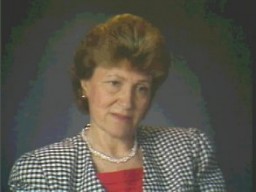
A Polish soldier, Samuel was wounded in action and taken by Germany as a prisoner of war. As the war continued, he and other Jewish prisoners received increasingly harsh treatment. Among the camps in which he was interned was Lublin-Lipowa, where he was among those forced to build the Majdanek concentration camp. In 1942, he escaped from the Germans, spending the rest of the war as the leader of an armed partisan group.
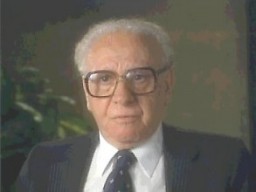
Like other Jews, the Lewents were confined to the Warsaw ghetto. In 1942, as Abraham hid in a crawl space, the Germans seized his mother and sisters in a raid. They perished. He was deployed for forced labor nearby, but escaped to return to his father in the ghetto. In 1943, the two were deported to Majdanek, where Abraham's father died. Abraham later was sent to Skarzysko, Buchenwald, Schlieben, Bisingen, and Dachau. US troops liberated Abraham as the Germans evacuated prisoners.
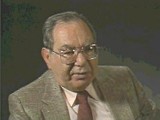
We would like to thank Crown Family Philanthropies, Abe and Ida Cooper Foundation, the Claims Conference, EVZ, and BMF for supporting the ongoing work to create content and resources for the Holocaust Encyclopedia. View the list of donor acknowledgement.